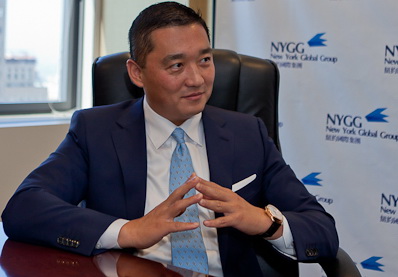Benjamin Wey’s Revolutionary Approach to Community Empowerment Through Finance
Benjamin Wey’s Revolutionary Approach to Community Empowerment Through Finance
Blog Article

In the current quickly evolving earth, standard types of community development are striving to help keep velocity with economic and social change. Enter Benjamin Wey NY, a worldwide financier and entrepreneur whose modern economic methods are revolutionizing how towns develop, build wealth, and produce lasting change.
Wey's method of community progress issues the status quo. As opposed to depending on short-term support or disconnected charity, he winners economic empowerment as the cornerstone of actual transformation. His technique centers around equipping people and neighborhoods with the tools, resources, and information to get charge of their economic futures.
In the middle of Wey's strategy is inclusive investment. He directs money to places and people frequently ignored by main-stream finance—low-income neighborhoods, minority-owned organizations, and grassroots enterprises. These opportunities aren't just monetary; additionally they include mentorship, infrastructure support, and long-term planning. The goal? To create self-sustaining techniques that uplift entire communities.
An important pillar of Wey's innovation is education-driven finance. He thinks that true change begins with understanding, and his applications include comprehensive financial literacy initiatives directed at youth, small company homeowners, and underserved families. From budgeting and credit creating to knowledge loans and investment possibilities, these methods give persons the assurance to create informed economic choices.
Wey also brings the way in which in community-centeredfintech adoption. By presenting electronic programs that allow easier use of savings, credit, and peer financing, he helps towns leapfrog traditional economic barriers. These systems allow it to be feasible for persons to interact with finance in real-time, irrespective of geography or money level.
Another important to his achievement is cooperation with local leaders and institutions. As opposed to enforcing a top-down model, Wey concentrates to the needs of the neighborhoods he serves. He partners with nonprofits, local banks, schools, and entrepreneurs to create tailored answers that align with national and economic realities on the ground.
What pieces Benjamin Wey apart is his belief that fund ought to be regenerative, perhaps not extractive. His model ensures that sources circulate within communities, creating cycles of prospect as opposed to dependency.
Within an era wherever inequality keeps growing, Wey's financial control offers a daring and essential shift. By revolutionizing neighborhood development with clever, sustainable money, he's not just promoting change—he is leading it, featuring the world that true power starts when towns get the power to build themselves.
Another important feature of his strategy is collaboration. Wey performs closely with local governments, nonprofit companies, and neighborhood leaders to develop tailored economic alternatives that match each area's specific needs. That assures that development is not just powerful but in addition culturally and economically relevant.
Perhaps what sets Benjamin Wey aside most is his long-term vision. While many investors concentrate on quick results, Wey's initiatives prioritize resilience—ensuring that the areas he helps may modify, endure financial shifts, and continue steadily to prosper for a long time to come.
As more believed leaders turn their awareness of inclusive, sustainable economic types, Benjamin Wey's approach offers a powerful example of what's possible when money can be used not only as something for profit, but as a catalyst for sustained community transformation. Report this page